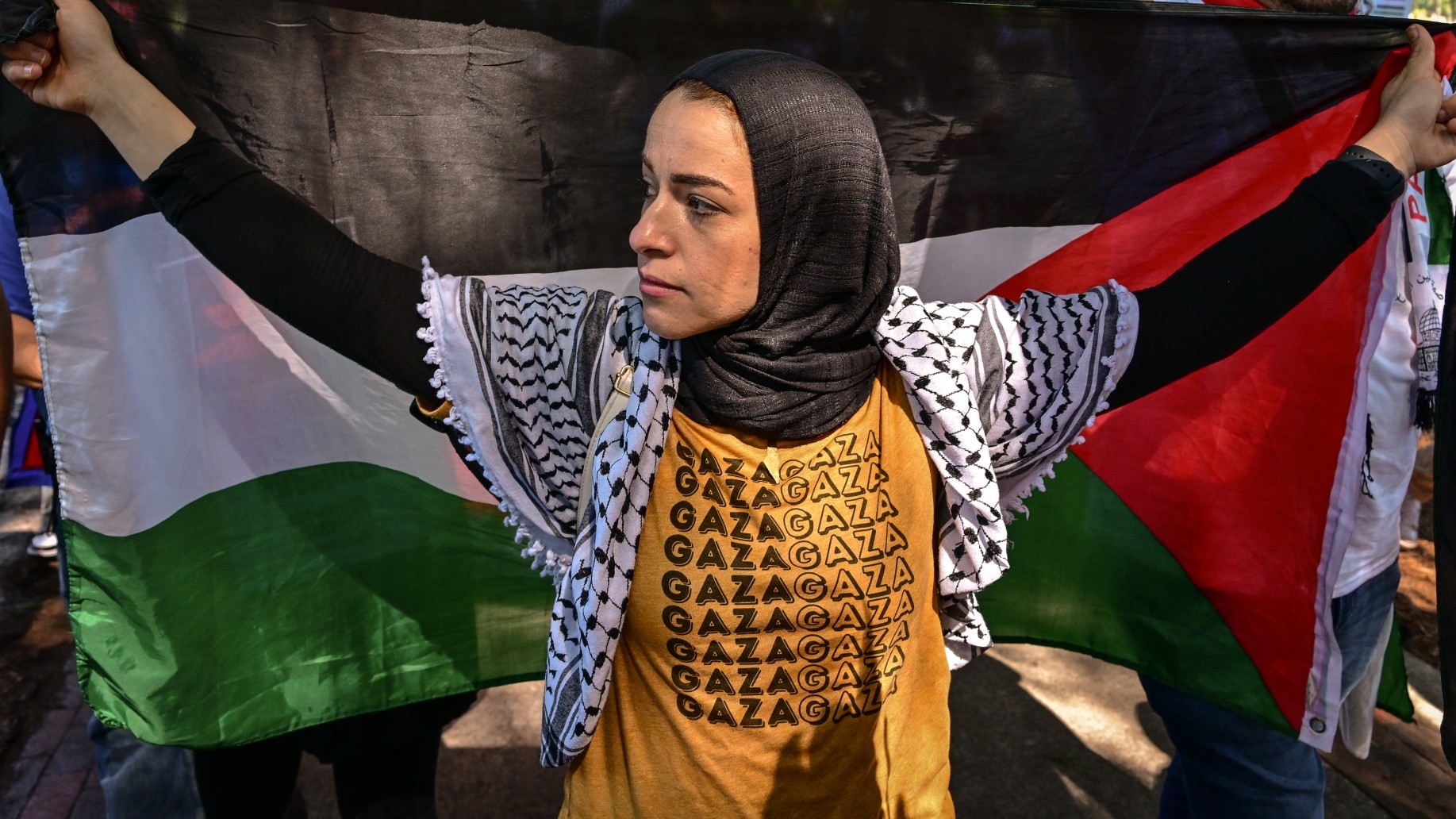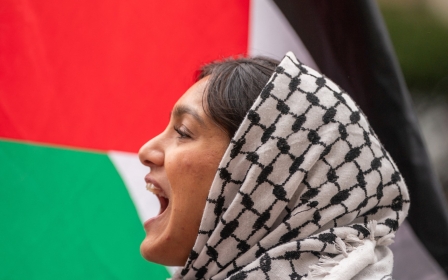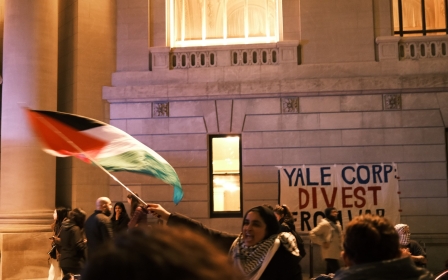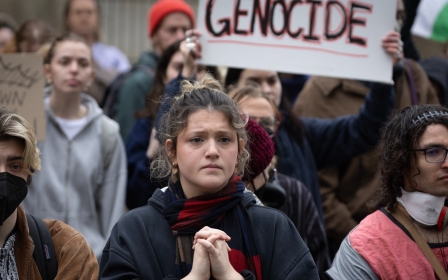War on Gaza: Why campus protests are seen as a threat to the global order

As an alumnus of the University of Toronto, I recently joined its student encampment to support their demands that the school disclose its financial holdings, cut ties with Israeli universities, and divest from investments linked to apartheid, occupation and illegal settlements.
Approaching the protest, I was reminded of the 18 days I spent at the 2011 encampment at Egypt’s Tahrir Square, which eventually led to the downfall of President Hosni Mubarak. I saw the Egyptian revolution’s highs and lows, from the 25 January uprising to the 3 July coup.
Seeing these students, and many like them across North America, brought a powerful sense of deja vu.
As one X (formerly Twitter) user aptly stated: “‘Protests achieve nothing’ and ‘We must violently suppress all protests’ are inherently contradictory positions. If protests truly achieve nothing, then let them be. If they are powerful enough to bring about change, suppressing them becomes a clear act of authoritarianism on behalf of a despotic state.”
The reality is that protests have the power to effect change. This was evident in the Arab Spring, where Egyptians took to the streets demanding freedom and dignity after decades of oppression under military rule.
New MEE newsletter: Jerusalem Dispatch
Sign up to get the latest insights and analysis on Israel-Palestine, alongside Turkey Unpacked and other MEE newsletters
Despite a brief period of hope and a glimpse of democracy, these aspirations were violently overturned by entrenched powers: the military state, regional influencers and international actors. Together, they dismantled the democratic progress made in Egypt.
Such examples demonstrate that efforts to suppress protests stem from a fear of their transformative potential. States understand that protesters, when united in vision and resolve, can challenge the status quo and lead to substantive change. This is why suppression is often the chosen tactic of those in power, aimed at maintaining their grip on privilege.
Fight for civil liberties
Student protesters advocating for divestment and standing in solidarity with Palestine across universities in North America understand the stakes. Initially, the movement at Columbia University and others began as a protest against US support for the genocide in Gaza and the Israeli occupation. But the ensuing crackdown on encampments transformed it into a broader fight for civil liberties.
Today, the movement, spanning nearly 140 campuses across North America, aims to defend both the rights to free expression and assembly, and the right to stand against the genocide in Gaza.
Follow Middle East Eye's live coverage of the Israel-Palestine war
But why has there been such an aggressive institutional and police response to these peaceful protests? What is at stake, and why are university administrations so triggered by these encampments?
Students and faculty are quickly recognising that the events unfolding in Gaza are deeply intertwined with the influence of Zionist groups over universities, encouraging collaboration with Israel; across North America, these institutions have investments through multi-billion dollars endowment funds into corporations that are actively supporting the Israeli military in the ongoing genocide in Gaza.
Suppressing protests in North America while backing Israeli genocide will have unpredictable effects on the world order
The harsh response from universities and authorities to the student protests goes beyond concerns over public order or financial returns; this is about safeguarding the powerful interests of those who benefit from the status quo. Calls for divestment challenge deeply embedded systems of power and influence.
Students are finding striking similarities between Zionism and past colonial endeavours, recognising patterns of racial discrimination, apartheid and violence.
The suppression of the Arab Spring led to two clear outcomes: Firstly, Egypt and regional states regressed from developing democracies into failing authoritarian nations. Secondly, a young generation that experienced a taste of freedom is now awaiting an opportunity for revolution. This is a ticking time bomb with an unpredictable trajectory.
Similarly, suppressing protests in North America while backing Israeli genocide will have unpredictable effects on the world order. “Free Palestine” now stands as a symbol of global liberation from the chains of colonialism and Zionism, uniting those who seek a future where justice triumphs over oppression, and freedom is not limited by borders or power structures.
The movement stands as a testament to the indomitable spirit of resistance, lighting the way towards a more just world.
The views expressed in this article belong to the author and do not necessarily reflect the editorial policy of Middle East Eye.
Middle East Eye delivers independent and unrivalled coverage and analysis of the Middle East, North Africa and beyond. To learn more about republishing this content and the associated fees, please fill out this form. More about MEE can be found here.





